On the eve of his 60th birthday, ex-Minister of Foreign Affairs of Abkhazia, a member of the Supreme Council of the WAC, doctor of philology, professor Viacheslav Chirikba told the WAC web information portal about choosing a profession, scientific activities, teaching in Europe and his way of life.
- 60 years is a certain milestone in a person’s life when intermediate results are summarized both in professional activities and in life in general. What can you call your main achievement for today?
— The number 60 does not really fit with my inner self-awareness, but I have to recognize this date as a reliable fact of my biography, and live with it.
For me it has always been important to become a specialist, a professional in the field that I have chosen as both my profession and my main hobby is linguistics. I hope that I succeeded, and it gives me a pleasant feeling of achieving my goal. I published several works that I am proud of, although there are not as many as I would like. I defended my doctoral thesis at the University of Leiden, one of the most famous universities in Europe, and before that I defended my thesis at the Institute of Linguistics in Moscow, where I studied with truly great Caucasian scholars.
I participated in the political life of my country - both among the Abkhaz Diaspora in Moscow in the 1980s, and when I was a diplomatic representative of the Republic of Abkhazia in Western Europe in 1992–2007, and when I was an adviser to the President, Sergey Bagapsh, on foreign policy, and when for five years I headed the country's foreign policy department. I have a feeling that I honestly served my society, people, country.
- As a former Minister of foreign affairs how do you see the course of development of Abkhazia towards international recognition?
— International recognition will not happen by itself, it needs big systematic work. First of all, it is necessary to pursue an active information policy, because we are still poorly known in the world. It is necessary to convey information about our country to the international community with good publications, skillful and tireless online work, organize international cultural and sporting events like the championship of ConIFA (International Football Tournament held by the Confederation of Independent Football Associations - ed.), international film festivals and exhibitions. It is necessary to actively practice youth student exchange. We must travel a lot and invite people to our country. And many other activities.
All this, of course, requires adequate funding, which we certainly do not have, and without this our efforts cannot be effective. But it is necessary to deal with all of the above mentioned, if we want a broader diplomatic recognition of our country.
- For more than 35 years you have been engaged in science in various fields: linguistics, history and international relations. How did your interests evolve and how were they determined in different years of life?
— In childhood and youth, I was very interested in zoology, I dreamed of becoming a zoologist. I had a zoo at home. In addition, I was interested in art, and also thought about the career of an art historian. But at about 15 years old I read the book of Professor Inal-ipa “The Abkhaz” - a great book, and I realized that this would be my vocation - Abkhazology. So it happened. And whether it is history, linguistics, or international relations - these are all faces of the same area - Abkhazia.
- What are you working on now and what are your scientific plans for the next five years?
— I have a whole range of books , linguistic and historical, which I consider my duty to publish. They are almost ready for publication, but they need some “polishing”. And then there are other scientific plans. So, I never get bored and never will, the only problem is to have time to realize my plans.
— You worked in Europe for many years, taught a course in Caucasian languages. How European students were involved in a similar course? And does, in your opinion, Caucasian linguistics contribute to the advancement of the culture of the Caucasus in Europe? If so, how?
— I am proud of my students, and I remember them with warmth, they studied Caucasian languages with great interest, some became good linguists. In general, the Caucasus is very interested in the world, and Caucasian scholarly conferences are always attended by many scientists. There is a large professional community of Caucasians in the world, whose books and other publications contribute to better acquaintance of the international community, and not only the scientific community, with the Caucasus, with its many peoples, their languages and cultures.
I mainly taught an introduction to Caucasian linguistics and grammar of the Abkhaz language. But one semester, as an experiment, I read the Georgian grammar using an excellent textbook of this language, written by Professor George Hewitt (well-known British Caucasiologist, Professor at the School of Oriental and African Studies, University of London - ed.). There were quite a few students, and one one of them was a Georgian from Iran, who did not know the language and tried to learn it. Somehow my and George’s friend, a Dutch professor Caucasiologist Ricks Smeets, saw this Iranian Georgian at my lesson and laughed: “Just think - an Abkhaz from Abkhazia teaches Georgian grammar from Iran in Dutch in Holland”. Indeed, it was a funny situation!
— You teach several courses at the Abkhaz State University, these are Caucasian languages, including Abkhaz, Ubykh and Adyg, as well as courses in international relations, therefore, you work with different students. How different the work with international studies and philologists? And is your approach to teaching different in Abkhazia and Europe?
— Yes, there are differences, not only in the very specifics of the courses, but also in the level of students' training - it is much higher in international relations than in the Abkhaz philology. At the philological department one sometimes has to explain such things, which, as I think, by the third year students should already know. Internationalists are generally more motivated, have an incomparably larger outlook, they know foreign languages, that for a student of the Abkhaz philology is a wonder, although philologists shine with knowledge of foreign languages all over the world and so on. However, at the philological department there are always one or two “stars” in the course, good motivated students, thanks to whom there is no feeling of wasted time. To be fair, I would say that I have been reading at Abkhaz State University since 2007, and the level of training of students of the Abkhaz philology is now much higher than before. It is evident that they are much more informed, perhaps thanks to the Internet, than their colleagues a decade earlier.
I think that the system of teaching in the Abkhaz philology requires reforming. Now students are trained as philologists, but the country does not need so many philologists, and it is necessary that teachers of the Abkhaz language are trained, whose number is not sufficient, but for this four years is enough, five years is too much. In general, it is possible to make a separate pedagogical institute from a part of the faculties, with four years of study, at the same time raising the level of the university itself.
Like all of us, the university needs to be fundamentally reformed in order to make it a truly modern and high-quality educational institution. Including, as well as all over the world, it is necessary to link the educational process with science, which is still not enough.
— Your children speak their native language well. Why, in your opinion, today it has become a rarity for Abkhaz families, and knowing their native language causes praise and pleasant surprise?
— My children spoke good Abkhaz language before they got into Abkhaz kindergarten. Seeing on the street how they talk in Abkhaz, many were touched and surprised, although it should not be strange that an Abkhaz child in Abkhazia speaks Abkhaz language! At the same time, children were always addressed only in Russian. I had to remind that the child does not yet know Russian, and this also caused amazement. It would be funny if it were not so sad!
So, in the Abkhaz kindergarten, my children learned the Russian language, and in the Abkhaz secondary school they switched to Russian fully. This is the specificity of teaching the Abkhaz language in Abkhazia - it is impossible to learn it in kindergarten or in school with existing outdated textbooks, methods and programs, but it is quite possible to forget, what happens very often. All this must be resolutely changed if we want to save our ancient and beautiful language, which is also a state language. However, with the current almost indifferent and incompetent attitude of the authorities, with scanty funding, and with an ineffective teaching system that has outlived itself, it is rather difficult to achieve progress here.
— Do you want your sons to follow in your footsteps and also do science? And will you influence the choice of their occupation or give them the opportunity to decide for themselves?
— I want them to become what they themselves want to become, and that their hobby, their main passion become their profession, as happened in my case. I think this is the perfect situation. For example, my eldest son Andrey was simply obsessed with computers from his teenage years, and as a result he became a good programmer, who now completely ensures his existence. So let my younger children, when the time comes, choose their own profession, and I will help with all I can. Whether it is science, medicine or anything else, it doesn't matter. It’s up to them to decide.
— If today's Viacheslav Andreevich was asked who he wants to become, what would you say? Would you repeat your professional and life way?
— As for the choice of profession, I would change nothing. As for the way of life, there were also mistakes that I would not like to repeat. But in general, there is little that I would like to change. I have been fortunate in life with friends, with such great people like Vladislav Ardzinba, Murat Yagan (North American philosopher and publicist of Abkhaz origin - ed.).
Each of them was a whole universe. Before and today there are a lot of meetings with wonderful people. All this has greatly enriched me and continues to enrich spiritually. For example, recently I have talked a lot with Mussa Ekzekov, who did a lot for Abkhazia. And I am still learning everything that is of interest to me, from different areas of knowledge. I used to read a lot and books like people are friends too. And now I write more. I enjoy communicating with children. I continue to make plans. Looking back, I can say that I am satisfied with my way of life.
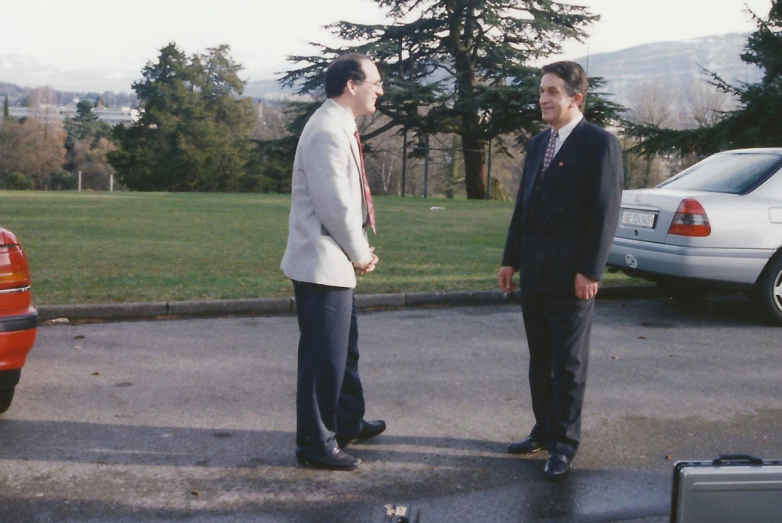
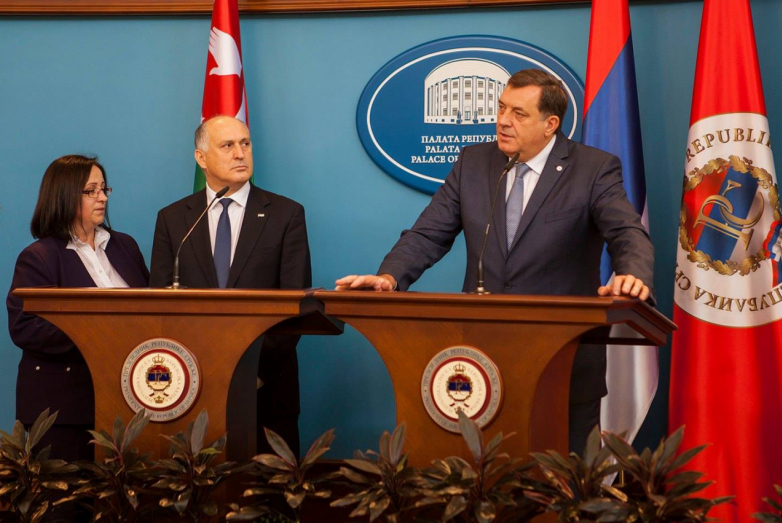
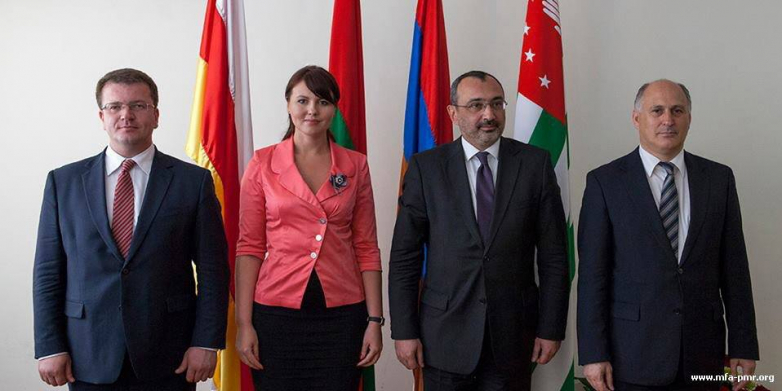
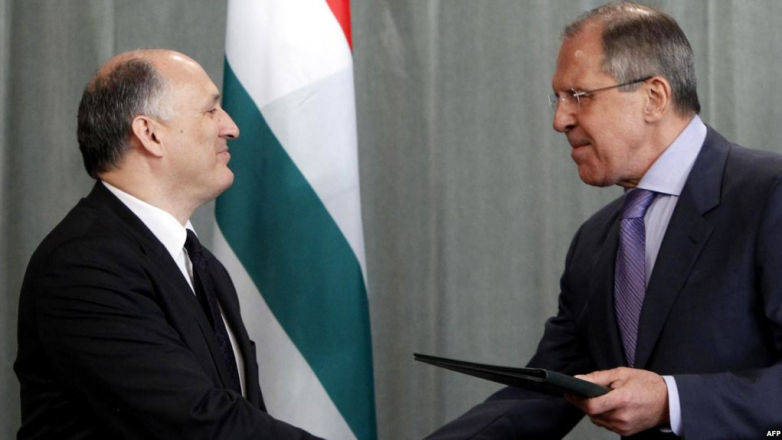
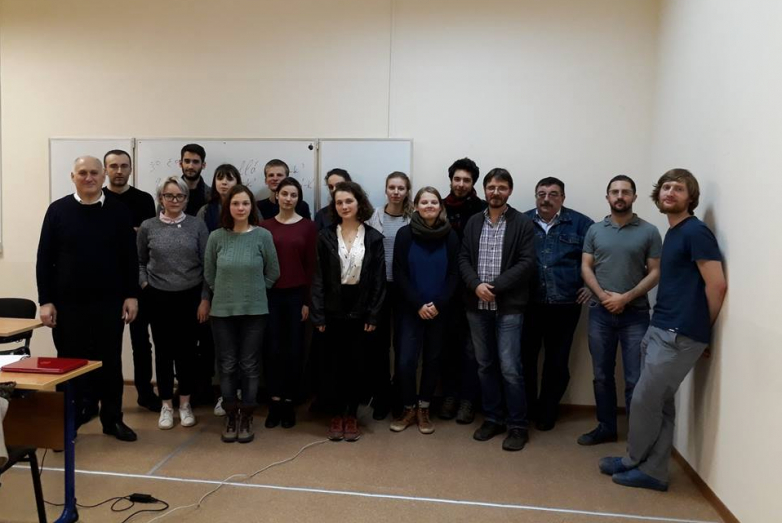
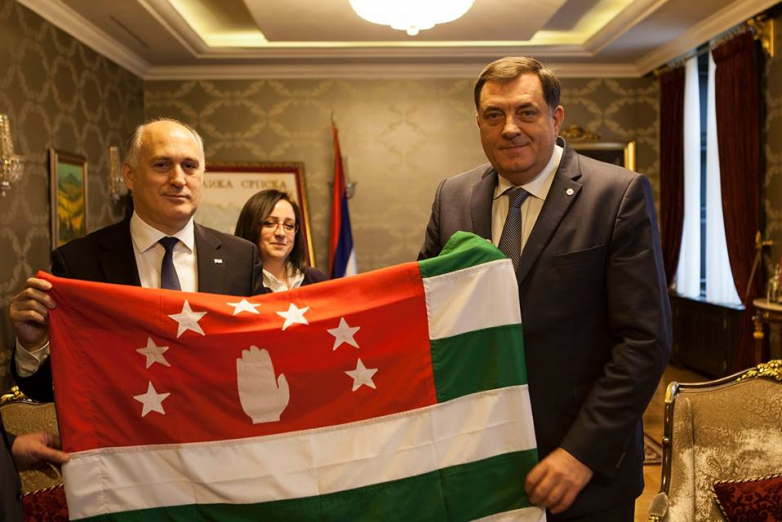
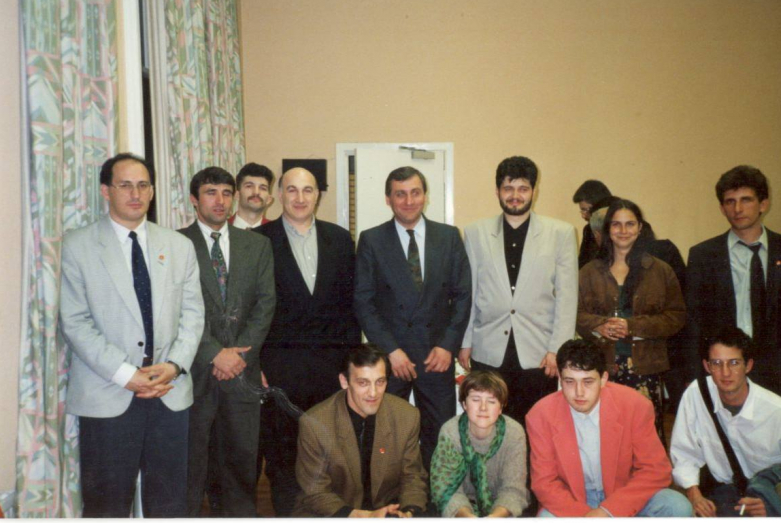
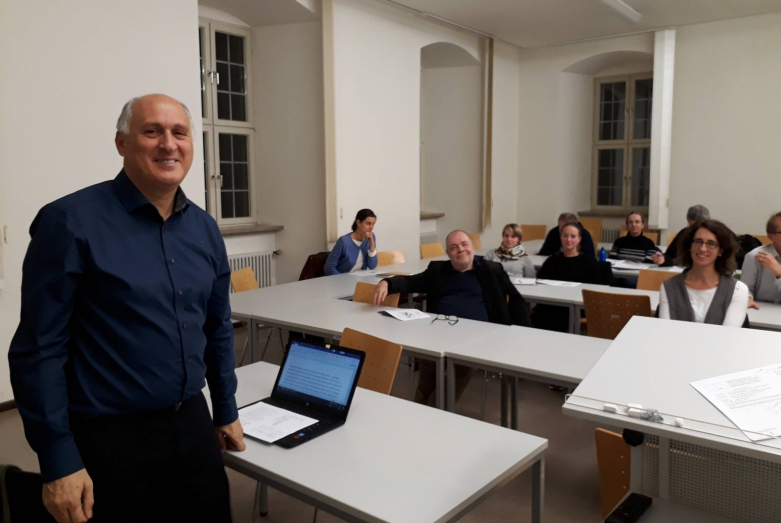
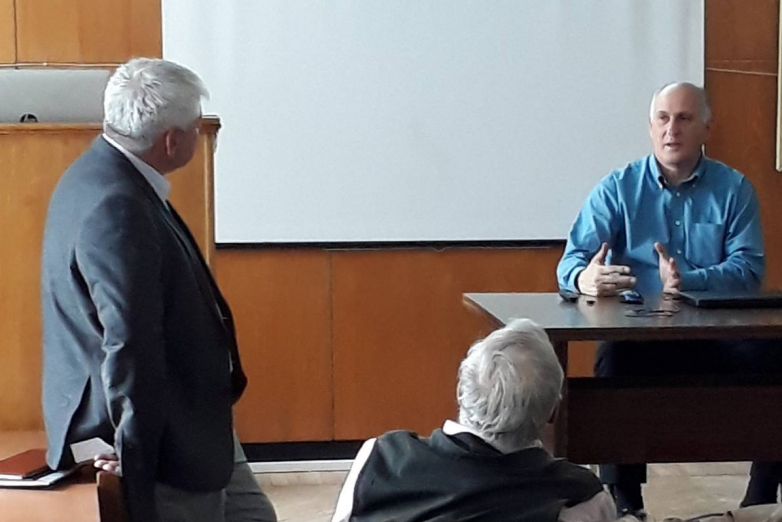
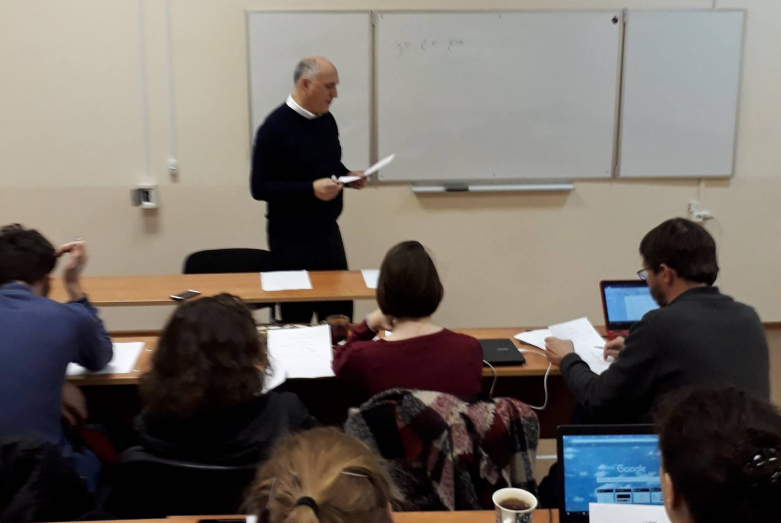
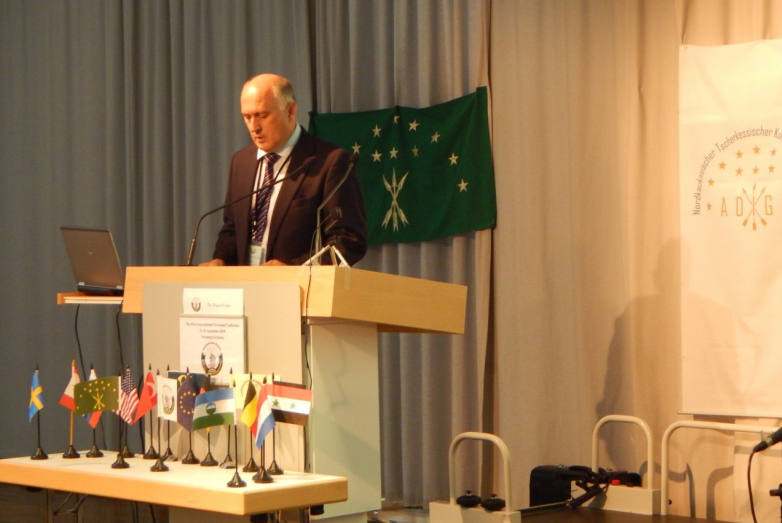
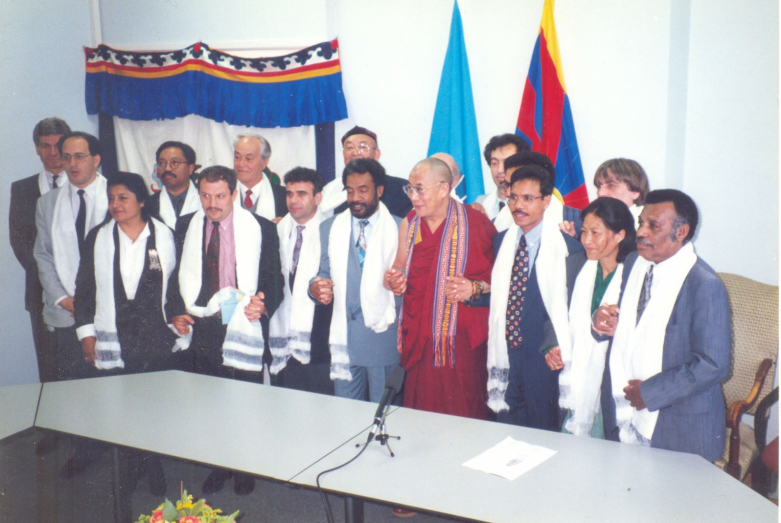
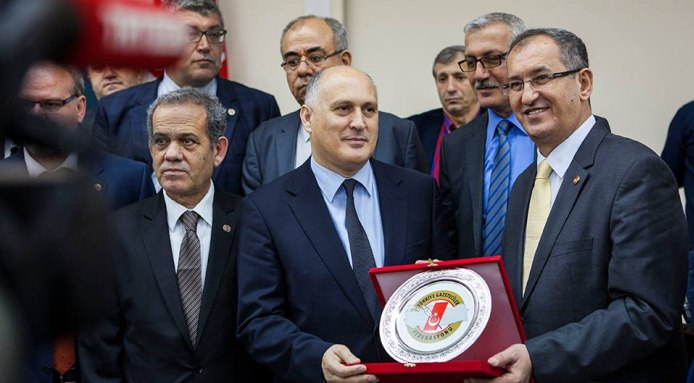
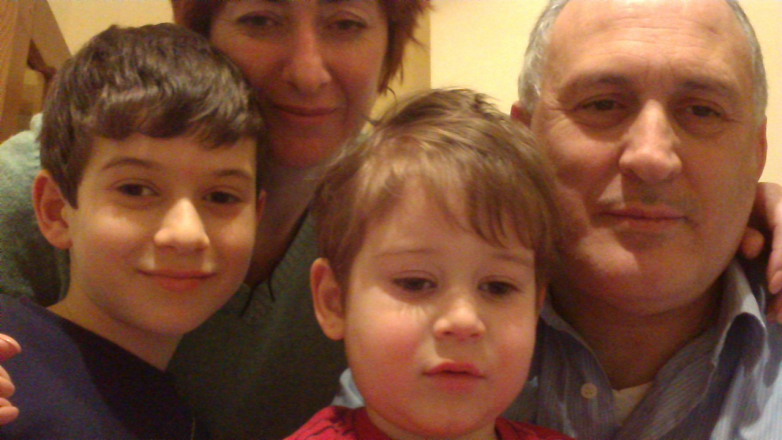
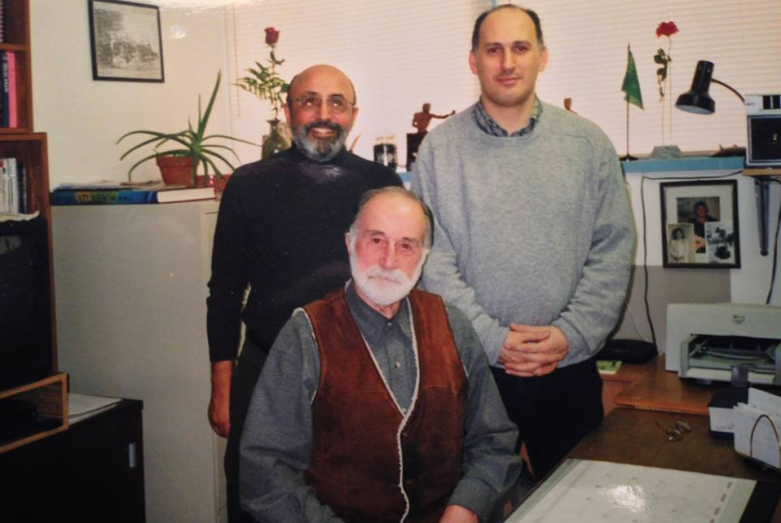
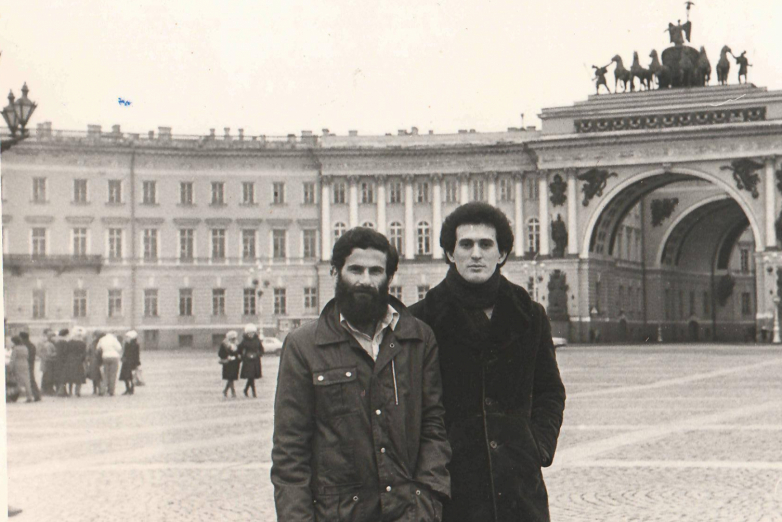
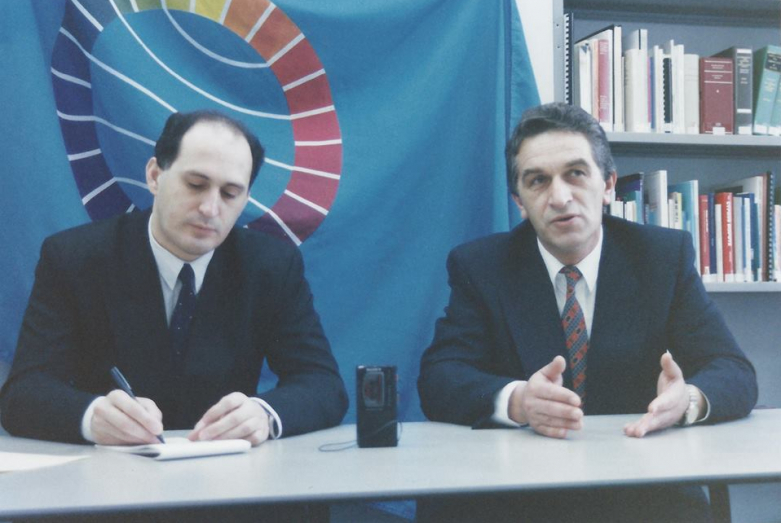
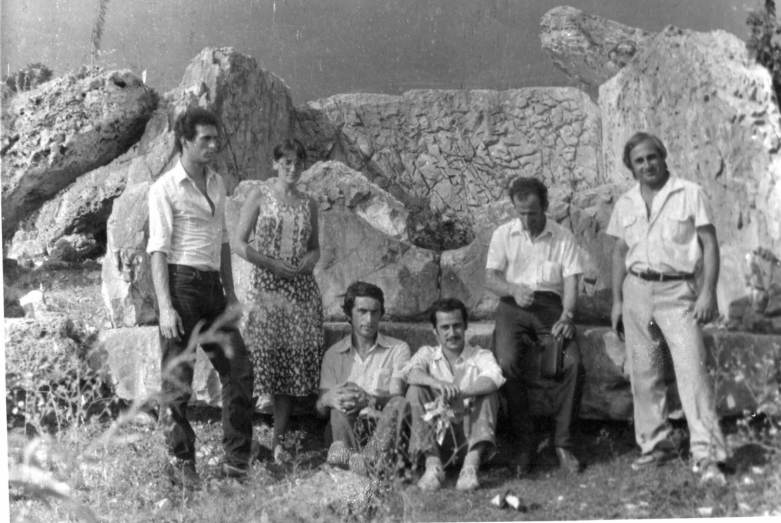
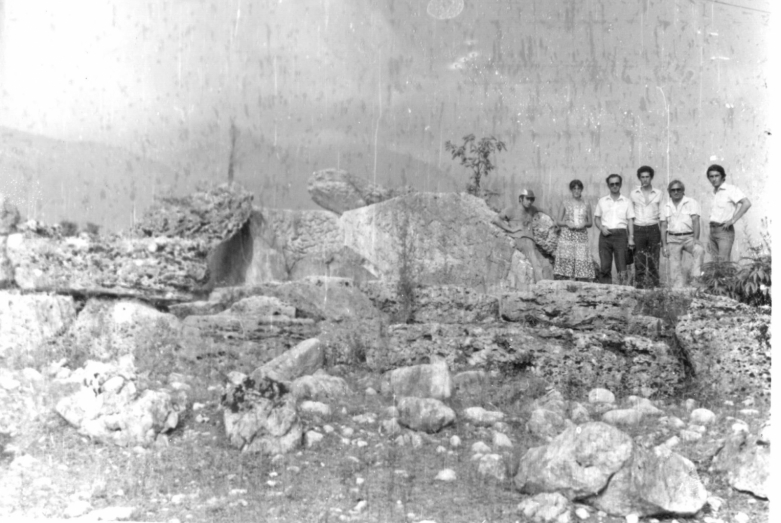
to login or register.